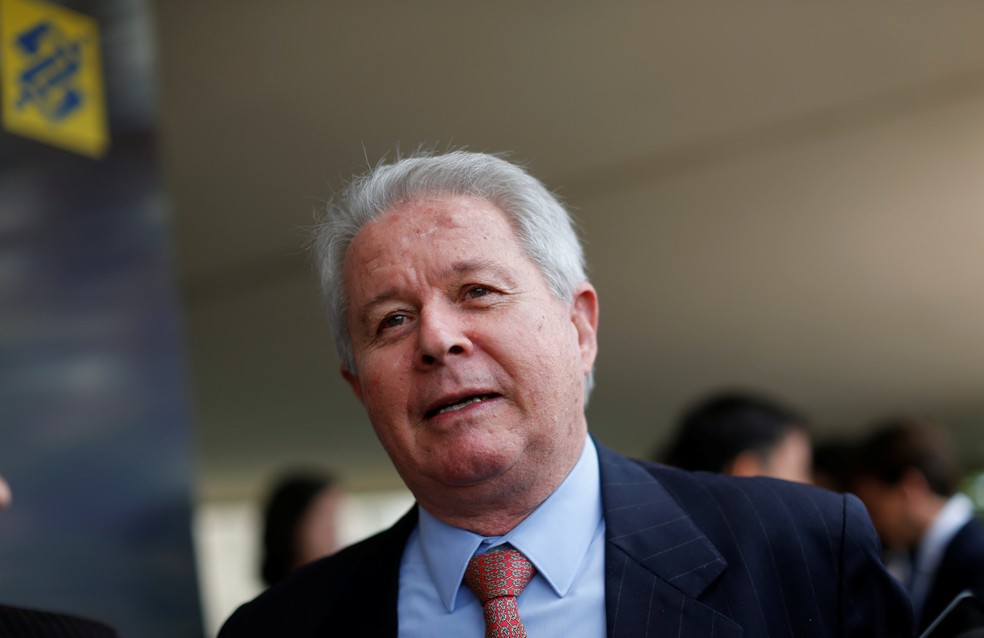RIO DE JANEIRO, BRAZIL – Banco do Brasil (Bank of Brazil – BB) achieved a record profit of R$17.8 billion (US$4.5 billion) in 2019, 32.1 percent higher than in 2018.

In the last quarter of 2019 alone, the banking institution had already achieved an adjusted net profit of R$4.6 billion. This figure represented an increase of 20.3 percent in relation to the total in the last quarter of 2018.
According to BB’s president, Rubem Novaes, the bank is experiencing “a very fortunate moment in its history”. “It is the highest profit in real terms and the profitability over assets is exceptional, coming very close to our private partners”, he said yesterday morning, February 13th, in São Paulo, during the announcement of the balance report.
The banking institution closed the year with a 2.6 percent reduction in its expanded credit portfolio, which totaled R$680.7 billion. The MSME portfolio (for micro, small and medium-sized companies) grew 8.5 percent in the period, reaching R$64.5 billion.
The bank is expected to have net profit between R$18.5 and R$20.5 billion by 2020. The projection is that the credit portfolio will increase from 5.5 to 8.5 percent, from an increase that should range from ten to 13 percent in retail, from two to five percent in wholesale and from one to four percent in agribusiness.
Rural Credit
The year-end financial report also shows a worsening in rural credit, which fell by R$1.7 billion, equivalent to one percent. According to BB, the R$5.6 billion reduction in Agricultural Trade was offset by an increase in the Central West Fund (FCO Rural) portfolio of R$2 billion and by Agricultural Investment of R$2.3 billion. The institution also reported that, among agribusiness entrepreneurs, its market share was 64.4 percent, the same as in 2018.

Regarding rural loans, Novaes believes the government needs to reconsider the concession criteria. “There is nothing more important today, in the rural sector, than the revision of capital requirements, made by the Central Bank for agricultural financing. We understand that these demands are excessive and, if there is a reduction in these figures, there could be a great increase in rural credit lines in the country,” Novaes said.
The vice-president of Agribusiness and Government, João Rabelo, stressed that the bank’s strategy for the agribusiness sector is to speed up the release of loans through digital platforms. He added that the aim is to expand contracts with individuals.
Currently, the bank has prepared branches to specifically serve this public. BB’s network contains approximately 5,400 service points throughout the country, and around 13 percent of them share this profile.
“We have 746 branches focused on agribusiness. This coverage is very important. We operate agribusiness at 5,400 service points. The operation is common to all branches, but 746 of them are located in markets where agribusiness is very active and growing, and we do not have any problems. In fact, we expect that we will be increasing the number of agribusiness branches. We will assist farmers wherever they are,” said Carlos Motta, Vice President of Retail Business.
Privatization
Novaes said he was in favor of privatizing the bank. He also assured that currently, he does not intend to implement a voluntary resignation plan for employees who join by competitive tests.
“There would be no traumatic change. When I talk about privatization, one imagines a revolution. That’s not what we are thinking at all. It’s about getting rid of the constraints that the public sector imposes on us,” he said.
According to him, the privatization of BB is “inevitable”, but “It’s a political decision, it’s far above us. It has to go through Congress [National], to persuade the president of the Republic.”
Source: Agência Brasil

